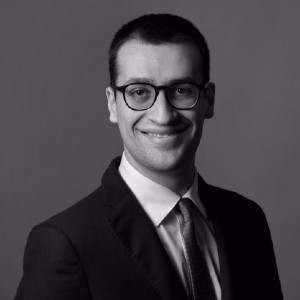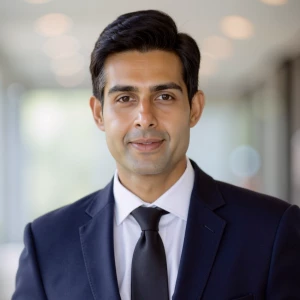Hi I was told thatI have done very well on the first 2 interviews but I was told that my structure needs improvement.
The recruiter has arrange the next interview, and said this is an additional interview before moving to the final round to test my ability to structure my thoughts and the problem and it will involve a case.
How should I deal with this? I'm assuming that the interviewer will come with a mindset that my structure is “poor” or "below average", any tips or any similar experiences?
I have received very good feedback on my first 2 interviews but I was told that I need to improve my structure of the problem solving process


In the next round, the interviewers will know about your “issue” with structure and will definitely check this in the interviews.
However, I have seen other candidates who got the same feedback after round 1 and in the following round failed because they put an exaggerated effort into structuring the problem and at the same time neglected to think about the meaning and impact of what they were saying.
Just go back to the basics. To ace an interview you have to come up with:
- Insightful and impactful content (showing business acumen and rigor)
- MECE structures (which means to provide answers that are broad, deep, and at the same time do not mix things)
- Effective communication (once your structure is defined, you have to communicate it in an assertive, clear, and concise way)
Therefore, my suggestion is to focus on the above three bullets in order: think about what you want to say, then structure it to be MECE, and then convey it with the fewer and more straightforward words you can come up with.
You can train this skill in every situation: think about a specific problem, set a 60-second timer, think about the content, the structure, and the communication, and then record yourself laying down your explanation. Then review it several times putting yourself into the interviewer's shoes.
Should you have any doubt, feel free to book a session.
Best, M

Hi there,
the firm sees potential, they just want to make sure you will succeed if you get in.
Problem structuring, the famous frameworks, is about breaking down the problem into logical and manageable pieces that allows you to scope the problem, define the key question and clearly communicate to the interviewer how to move on.
You can approach it like if you should write a plan of what all the steps you would do if you would be given this project. Once you have this validated with the interviewer you start solving the case following your plan.
I would recommend to check once again the material available on Preploung on type of the cases: https://www.preplounge.com/en/bootcamp, at least to familiar yourself with the different elements by type of the case. Then practice with peers and eventually invest in coach.
Good luck!
Lucie
Was this answer helpful?

Hi there,
Yes, you are correct - they will absolutely be more focused on your frameworking/structure. You need to demonstrate real improvement in this area.
Sounds like they like you but they are really not comfortable with your current state of frameworking/structure - do not miss this opportunity!
Now, my honest advice is to get a coach. I focus on this and I can't tell you how many people are totally wrong in how they think about frameworking - most need a mindset shift!
Structuring/Frameworking
If there's anything to remember in this process, is that cases don't exist just because. They have come about because of a real need to simulate the world you will be in when you are hopefully hired. As such, remember that they are a simplified version of what we do, and they test you in those areas.
As such, remember that a framework is a guide, not a mandate. In the real-world, we do not go into a client and say "right, we have a framework that says we need to look at x, y, and z and that's exactly what we're going to do". Rather, we come in with a view, a hypothesis, a plan of attack. The moment this view is created, it's wrong! Same with your framework. The point is that it gives us and you a starting point. We can say "right, part 1 of framework is around this. Let's dig around and see if it helps us get to the answer". If it does, great, we go further (but specific elements of it will certainly be wrong). If it doesn't, we move on.
So, in summary, learn your frameworks, use the ones you like, add/remove to them if the specific case calls for it, and always be prepared to be wrong. Focus rather on having a view, refering back to the initial view to see what is still there and where you need to dive into next to solve the problem.

Hey there,
This is a very “normal” thing to happen. Looks like you need to internalize the following to clear any doubts:
- Listening very careful to the prompt
- Verifying case objective
- Developing clean and fit for purpose MECE structure for problem & objective at hand
- Communicating said structure top-down
- Actually using your structure
- Bonus: execute all steps above for mid-case brainstorming questions
Not sure where exactly the problem lies but happy to run a very targeted coaching with you regarding the above!
Let me know!

Dear Candidate,
great that they have given you specific feedback. In this case I would recommend that you practise this skill - so let your case peers know and focus on it. It also helps to refer back to your initial structure throughout the case interview. Make a point of writing it down clearly in the beginning and then as you go through the case share with the interview where you are at so that there is an overall frame by which the problem is solved.
Best regards,

Honestly, this is the point where you get the maximum value for money for a coach. You clearly have spikes that provide you a second chance, but you have a clear area of improvement. You don't have much time, and if you are able to improve on that point you'll move to the next round.
Good luck!

Hello!
The next interviewer you will have will most likely have no previous feedback from previous rounds or interviewers, precisely not to be biased.
Cheers,
Clara














First "structured problem solving" is a way of an end to end thinking that you can develop by practicing (it will not be developed overnight). But some quick ways are:
1. Ask clarifying questions (what are you looking for in the question?)
2. Think about all aspects of the problem (e.g. product, stakeholders, risks,...)
3. communicate properly from beginning to the end (tell them what you are going to tell them and then jump into the details)